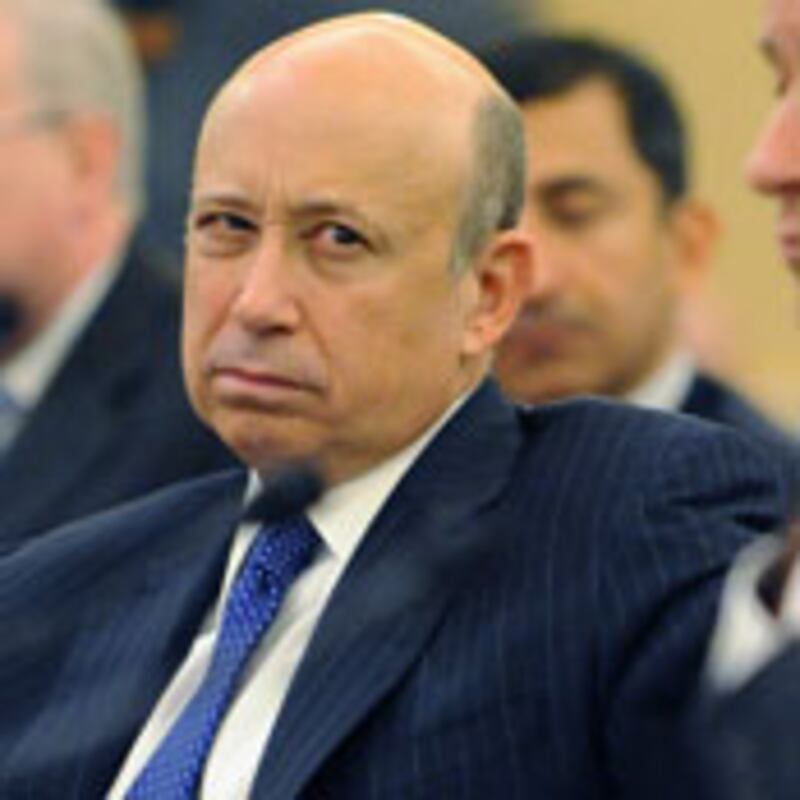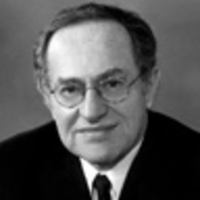
The SEC charging Goldman with securities fraud is like the Vatican charging a priest with venial sin. It is the most generic of accusations suggesting wrongdoing without precisely specifying the exact nature of what was wrong. The reason the SEC had to level so vague a charge is that the laws governing (or failing to govern) the kinds of transactions at issue in the Goldman case lack the specificity generally associated with criminal and quasi-criminal prohibitions.
Securities fraud is an accordion-like term that expands and contracts over time, depending on the outrage of the public, the mood of the media, and the discretion of law-enforcement officials. No experienced lawyer could have predicted with accuracy, at the time they were doing it, whether what Goldman is accused of doing would fall on the wrong or right side of the ever-changing "fraud" line—if there even is a line. A good lawyer might have counseled caution and advised there were risks, but if asked the direct question, "Is this fraud under existing law?" she would have had to reply, "I can't be sure."
At the time of the enactment of the Constitution, there was a folksy phrase that was used to describe whether a prohibition was sufficiently clear: The law must be so plain that even he who “reads it while running” may understand it.
As Joe Nocera of The New York Times put it, “What makes it feel like dirty pool is the allegation that Paulson & Company and Goldman Sachs were actively involved in choosing the bonds that would be bet on—knowing they were going to be short. In its filing on Thursday, the SEC charged Goldman never told investors of Mr. Paulson’s involvement.”
To an outsider, what Goldman was doing doesn't pass the smell test, but that's true of much of what passed for investment strategies leading up to the mortgage bubble. Most of these questionable strategies do not fall on the wrong side of the fraud line, though with the benefit of hindsight, perhaps they should now be outlawed. The smell test may be a good cautionary exercise but it is no substitute for clear and precise laws.
• Big Fat Story: Can Goldman’s Chief Survive?• Charlie Gasparino: Goldman’s Dirty Pool• Roger Martin: Goldman’s Shell GameIt seems clear as a matter of business ethics—an apparent oxymoron in the pre-bubble days—that Goldman’s secret use of Paulson to pick bonds he hoped would fall in value, for a fund that was supposed to rise in value, was an undisclosed conflict of interest. Such conflicts should be against the law for banks and hedge funds, as they are for lawyers, but they are not specifically prohibited by current security laws, unless they cross the line into fraud. That, of course, begs the question.
The lack of clear and specific rules, especially regarding conflicts of interest, relegate the SEC to charging generic "fraud," which denies the accused fair warning and substitutes vague tests such as “dirty pool” or “smell,” both of which Goldman fails. The irony is that the last thing the financial community wants is clarity and specificity, since vagueness gives them a competitive advantage.
To be sure, neither Goldman not its vice president has been charged with criminal fraud. Paulson was charged with nothing, though he could easily have been charged with conspiracy to defraud—an even more elastic concept. The only proceeding, at least for now, is a civil lawsuit. But the open-ended concept of “securities fraud” gives rise to both criminal and civil liability. The decision to limit the charge to a civil accusation is a matter of discretion, not law. The conduct for which Goldman is being charged could be criminal as well as civil, despite its vagueness and lack of fair warning.
The current situation, which accords banks and hedge funds maximum flexibility while denying fair warning to those who are ultimately charged by the SEC, is generally acceptable to the financial community as a whole. It is seen as preferable to heavy-handed regulation, with specific prohibitions and precise limitations. Sure, every so often there is an unfair scapegoating of some institution or individual. Sometimes the courts step in to afford protection, as they did in several recent cases. But even if some money has to be paid, or an occasional miscreant imprisoned, it is better than the alternative—at least for the banks and hedge funds.
It is not better, however, for the general public and for the constitutional requirement of fair warning and notice. The law should be changed. The broad concept of “securities fraud” should be amended to define with specificity precisely the kind of misconduct that gives rise to civil liability and precisely the kind that gives rise to criminal liability. Guess work should be eliminated as much as humanly possible. A banker or hedge-fund operator should be able to look at the law and know in advance whether what he is planning is legal or illegal.
At the time of the enactment of the Constitution, there was a folksy phrase that was used to describe whether a prohibition was sufficiently clear: The law must be so plain that even he who “reads it while running” may understand it. The current law of fraud should be changed so that it is clear even to those people who “are running” banks and hedge funds. A good place to begin would be to make it a crime for a bank or a hedge fund manager to do what Goldman and Paulson did. But that crime should be applicable only to conduct that occurs after the new law is enacted.
Professor Alan M. Dershowitz is Brooklyn native who has been called “the nation’s most peripatetic civil liberties lawyer” and one of its “most distinguished defenders of individual rights.” He is the Felix Frankfurter Professor of Law at Harvard Law School. Professor Dershowitz is the author of 27 fiction and nonfiction works.






